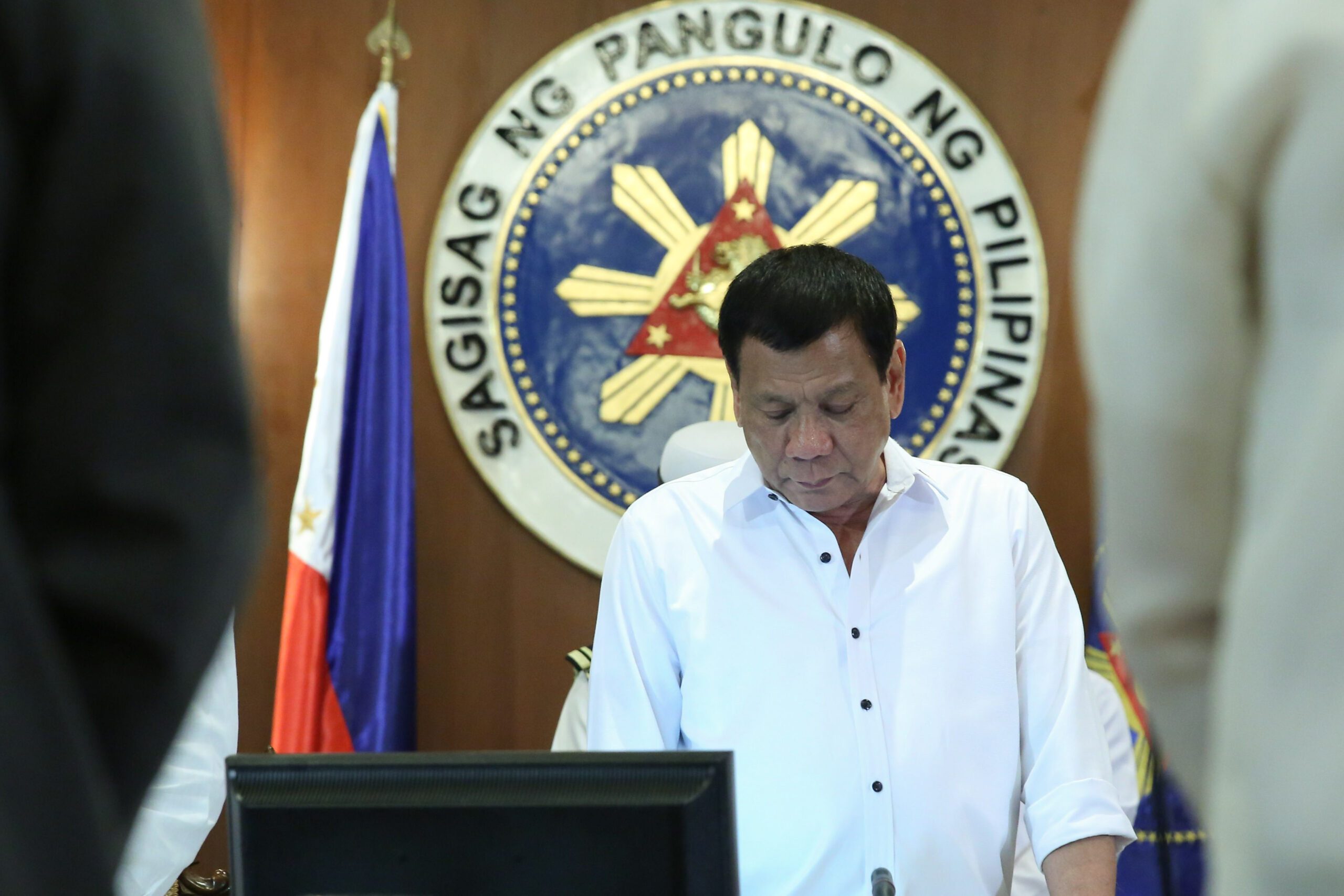SUMMARY
This is AI generated summarization, which may have errors. For context, always refer to the full article.

MANILA, Philippines – Former government officials on Tuesday, April 4, urged President Rodrigo Duterte not to “abuse” the power of presidential pardon after he said that he would pardon police who allegedly killed a suspected drug personality in the guise of an operation.
“The president’s power to grant executive pardon was intended to provide a chance to correct judicial mistakes and to extend clemency to those deemed to have sufficiently atoned for their offenses. It is wrong to pervert this power to give law enforcement agents impunity to kill by ensuring that no authentic judicial process takes place,” said members of the Former Senior Government Officials (FSGO) in a statement.
Duterte had earlier promised that he would pardon several police personnel from the Eastern Visayas Criminal Investigation and Detection Group (CIDG) and Maritime Group (MG) who are now facing criminal charges over the death of Albuera Mayor Rolando Espinosa Sr and Raul Yap. (READ: Duterte: I won’t let cops in Espinosa slay go to jail)
Espinosa and Yap were killed inside their jail cells on November 5, during what police say was an operation to serve a search warrant against them. The National Bureau of Investigation (NBI) had earlier labelled the incident a “rubout.”
The Senate, through hearings chaired by former national police chief Senator Panfilo Lacson, concluded that the incident was a means to “cover-up” the cops’ own ties to the Espinosa drug web.
Duterte had earlier said the police could just plead guilty and immediately get his pardon.
“What may be technically legal can be morally wrong, politically counterproductive, and ultimately dangerous for our country. Abusing the power of presidential pardon to plan a crime, with the guaranteed promise of absolution upon its commission, corrupts law enforcement agencies and paves the way for more corruption,” added members of the FSGO in the statement.
Among those who signed the statement were former Philippine Ambassador Jose Cuisia and former Cabinet officials, particularly those from the previous administration including Alberto Lim, Imelda Nicolas, Dinky Soliman, Teresita Deles, Ramon Jimenez, and Joel Rocamora.
Duterte has long said he would defend police who got into trouble in the line of duty – a promise he apparently intends to keep in the case of Superintendent Marvin Marcos and company.
The President has insisted he would pardon them in the event of conviction, despite criticism.
‘State-sponsored killings’
Pardoning Marcos and his cohorts, the members of the FSGO argued, would “implicate” Duterte in “state-sponsorship of the Espinosa murder” and even in the thousands of unsolved killings with possible links to his drug war.
They also said that it was wrong to “disrespect” the NBI by the “casual dismissal” of its findings that the Espinosa killing was a rubout.
“It is wrong to coerce lower level police agents not privy to, or directly involved in the Espinosa killing to plead guilty, when they might have been simply following orders to provide security.”
“It is wrong to place senior police officials in a position where following implicit directives may lead to illegal acts. Presumed to know better, they would be criminally liable for executing illegal orders.”
“It is not yet too late for the President’s advisers, friends and followers to tell him this,” the former government officials said.
They added: “These messages need not be delivered publicly, but they must reach the President. The messenger bearing bad news runs the risk of getting shot. But the higher the office, the greater the responsibility to perform this task.”
Duterte has led a popular but bloody war on drugs since he assumed power on June 30, 2016. (READ: IN NUMBERS: The Philippines’ ‘war on drugs’)
Philippine police have been accused of curtailing human rights and their own procedures in the name of the drug war, a claim they have denied. – Rappler.com
Add a comment
How does this make you feel?
There are no comments yet. Add your comment to start the conversation.